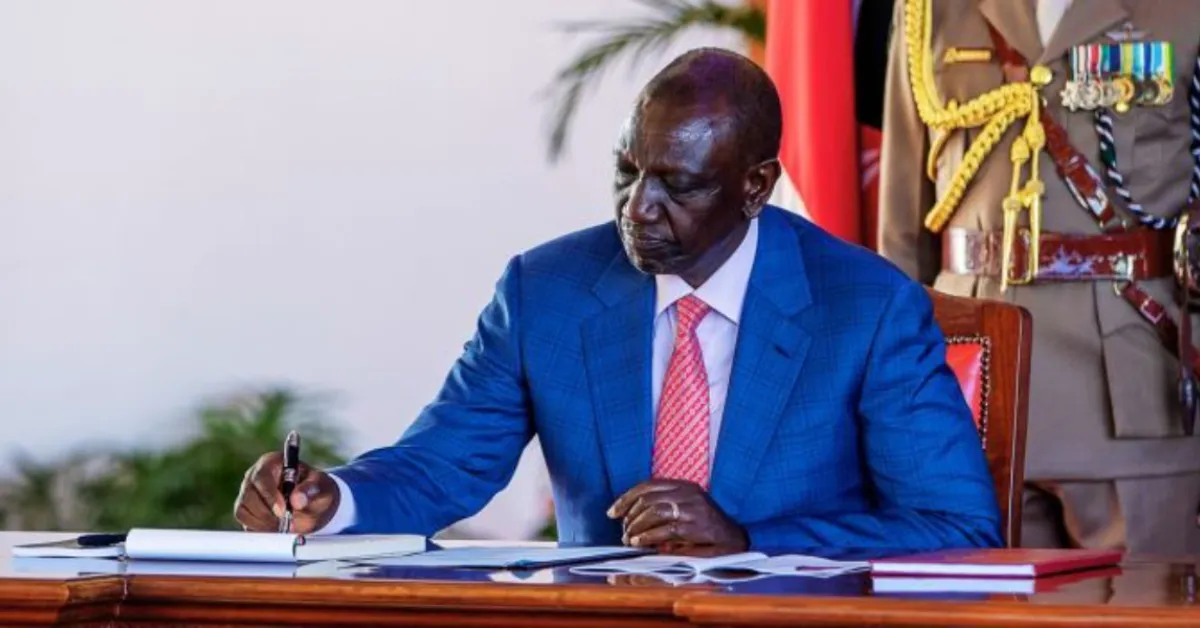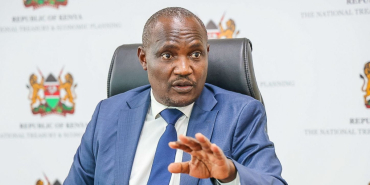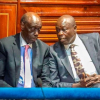Finance Bill 2025: Ruto's Government Pledges Tax Relief

Kenya's Cabinet has pledged reduced taxes for the upcoming fiscal year to alleviate public concerns amid anticipation of the Finance Bill 2025, which remains closely guarded.
Despite National Assembly Speaker Moses Wetang’ula’s confirmation of receiving the bill from the National Treasury Cabinet Secretary, the document has not been disclosed for public scrutiny, citing ongoing proofreading as the reason for the delay. The Finance Bill 2025, crucial for outlining revenue generation measures for the proposed budget, is slated to undergo its First Reading soon after publication. Following this, it will be assigned to the Departmental Committee on Finance and National Planning for evaluation and public input facilitation.
However, unauthorised portions of the bill, shared on social media by State officers with early access, have intensified public curiosity and debate. Under the Public Finance Management Act, the draft must be submitted to the National Assembly by April 30. The Budget and Appropriations Committee will then present it to Parliament for deliberation. The National Assembly is tasked with ensuring the bill is ready for presidential assent or rejection by June 30, enabling the Kenya Revenue Authority (KRA) to implement new tax measures from the start of the new financial year.
Failure to meet this timeline would result in the extension of the previous year’s Finance Act. This scenario occurred with the Finance Bill 2024, which was tabled on May 13, exacerbating delays and public discontent. The Finance Bill 2025's current opacity echoes the contentious handling of the Finance Bill 2024, which triggered widespread protests against increased taxes. The protests, initially led by youth voicing grievances over new levies tied to International Monetary Fund (IMF) conditions for budgetary support, expanded to encompass concerns about government spending, public officials’ extravagance, and the treatment of small businesses.
The unrest culminated in the invasion of Parliament on June 25, 2024, resulting in nine fatalities and subsequent investigations by the Independent Policing and Oversight Authority (IPOA). The three-month period of demonstrations led to at least 60 deaths and hundreds of injuries, drawing international attention to Kenya’s volatile political landscape. President William Ruto responded by declining to endorse the Finance Bill 2024, dismissing his Cabinet, announcing measures to curb wasteful spending, and engaging in political dialogue with opposition leader Raila Odinga and the ODM Party to de-escalate tensions.
The Cabinet has vowed to avoid repeating past errors. Officials have emphasised intentions to expedite tax refunds, resolve disputes efficiently, and reduce tax-raising measures. The Finance Bill is expected to address gaps in existing laws to facilitate revenue collection and reduce litigation. Proposed amendments to key legislation, including the Income Tax Act, VAT Act, Excise Duty Act, and Tax Procedures Act, aim to streamline processes and offer relief to businesses, especially small enterprises.
A notable provision highlighted by the Cabinet includes allowing small businesses to immediately deduct the cost of everyday tools and equipment in the year of purchase, eliminating delays in accessing tax relief. This measure, along with broader reforms targeting tax cheats and enhancing audits, signals an effort to prioritise fairness and efficiency in tax administration. Despite these assurances, the secrecy surrounding the Finance Bill 2025 continues to sow uncertainty.
While National Assembly Clerk Samuel Njoroge cited ongoing proofreading as the reason for the delay, others have speculated that the government is deliberately withholding the document to minimise public backlash ahead of its official tabling. The government’s communication strategy has also faced scrutiny. On Wednesday, Dennis Itumbi, head of presidential special projects, shared details of the proposed tax cuts on social media. His graphic suggested measures such as halving levies on cryptocurrencies to 1.5 percent and scrapping the digital service tax.
He also claimed that aircraft spare parts for maintenance would be exempt from taxes under the bill. Speaker Wetang’ula has directed that the budget estimates for the 2025/26 fiscal year be sent to departmental committees and the Budget and Appropriations Committee for detailed examination. The committees are expected to consult with stakeholders and ensure inclusive participation during the review process. The Budget and Appropriations Committee will ultimately make recommendations to Parliament, factoring in reports from departmental committees, submissions from the Treasury, and public input.














Add new comment